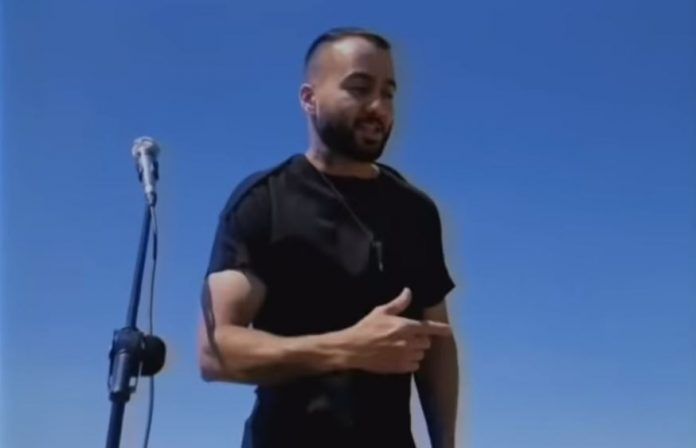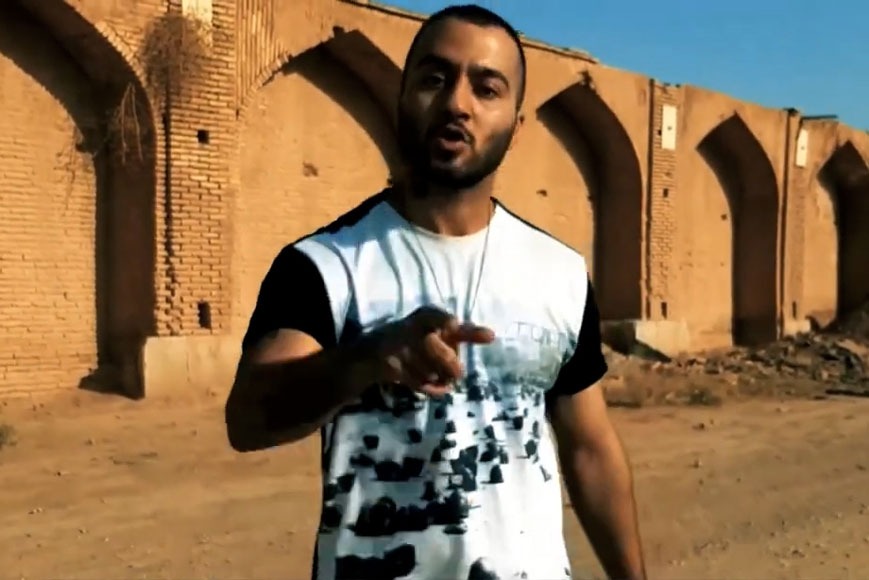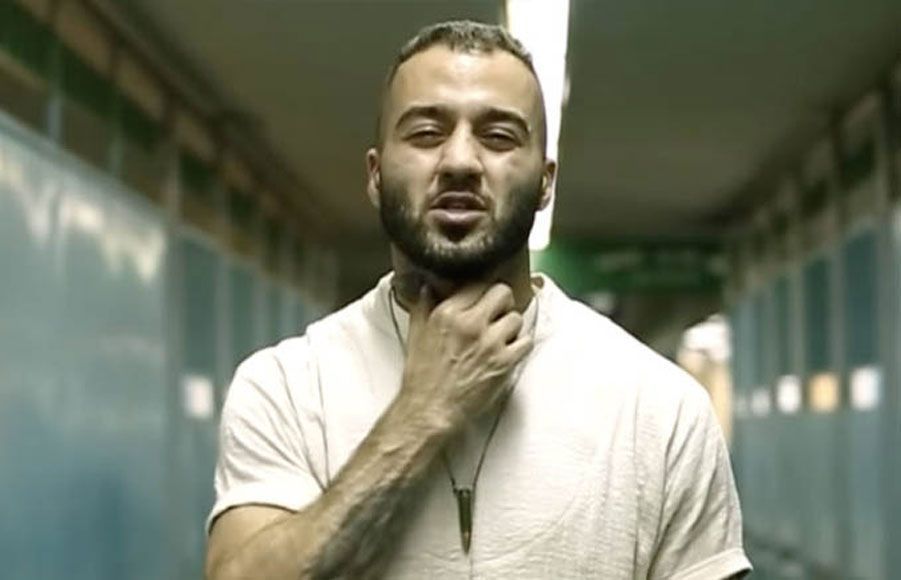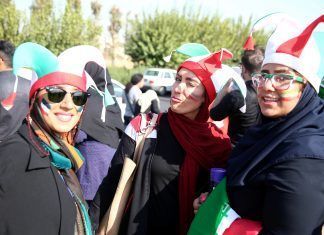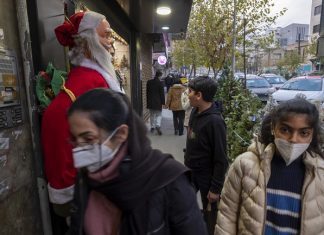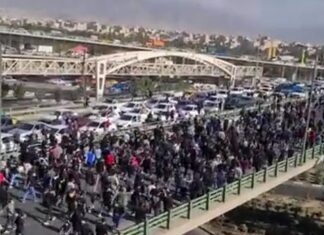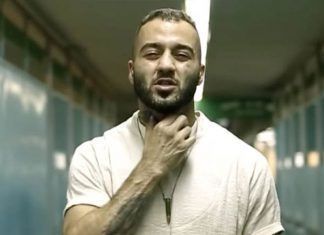By Kayhan Life Staff
Jailed Iranian rap artist Toomaj Salehi – known for his protest songs including Soorakh Moosh (“Rat Hole”), Turkmenchay (“Normal”) and Anar (“Pomegranate”) — had been reportedly banned from receiving visitors since his arrest on Sept.13, his lawyer Amir Raisian has said.
Salehi is currently free, having been released on bail on Sept. 22 following a social media outcry over the rapper’s arrest and detention.
Speaking to the Tehran-based Rouydad24 News Agency, Mr. Raisian said Mr. Salehi was being investigated by the Shahin Shahr prosecutor’s office in the central province of Isfahan. He added that authorities “had not provided detailed information” about the charges to Salehi and his family.
Raisian noted that although authorities had not formally charged his client, they had told Salehi’s father that he was accused of “propaganda against the state.”
“We pursued the matter with the prosecutor’s office in Shahin Shahr, where he [Toomaj] lives, but, unfortunately, were told to come back in the next few days,” Raisian said. “I still do not know if a warrant had been issued for his arrest, and what is it for.”
Raisian explained that he could not register formally as Toomaj Salehi’s lawyer, adding that he hoped to represent his client officially and post bail to secure Salehi’s release.
Raisian said Toomaj Salehi had been arrested on Sept. 13 in Shahin Shahr, where he lives. “Based on the information we have got, the prosecutor’s office of Shahin Shahr is overseeing his case,” Raisian added.
Toomaj Salehi’s maternal uncle Eghbal Eghbali, who lives in Germany, told Kalameh TV on Sept. 19 that his nephew had been transferred to Dastgerd’s intelligence detention center known as Isfahan Central Prison.
“They told the family to go to the prosecutor’s office, where they were laughed out of the building, and were told that ‘intelligence’ had given them the runaround,” Mr. Eghbali said. “They [the family] have hired a lawyer who is currently pursuing the case.”
“Toomaj is being savagely tortured, and we worry they might torture him to death,” Eghbali added. “Toomaj is under much stress right now, and the Islamic Republic is trying to break him and force him to confess to trumped-up charges. They have released similar footage [of others] in the past, and they will do the same to Toomaj.”
Eghbali urged the UN and international organizations to send investigators and doctors to Isfahan Central Prison to visit Toomaj.
Asked if he had any message for “journalists and human rights activists” who are affiliated with the Islamic Republic and were delighted at the arrest of Toomaj, Eghbali said: “Their numbers are insignificant, and I do not want to address them. I want to urge young people to disseminate the manifesto of ‘Soorakh Moosh’ in society, which is a warrior’s manifesto, people’s battle against dictatorship in Iran, which they should spread and take to the streets.”
Eghbali compared Toomaj Salehi’s songs to the music of Victor Jara, a Chilean revolutionary poet and singer.
“His songs reflect the pain of our society and nation,” Eghbali argued. “He is a warrior, who through his thoughtful and analytic art, exposes the hardship and misery that has plagued Iranians.”
“Iran needs someone like Toomaj right now,” Eghbali added. “I am certain there are millions of others like Toomaj walking the streets.”
According to Eghbali, three of Toomaj’s friends were also arrested.
Prince Reza Pahlavi has described Toomaj Salehi and Sheydaye Hamedani, an Iranian poet who was also arrested, as artists whose work personified nationwide protests.
“Works of Toomaj Salehi and Sheydaye Hamedani crystallize widespread protests,” Reza Pahlavi tweeted on Sept. 18. “Their popularity shows a prevalent dialogue regarding a [regime] change.”
“They have courageously become the voice of [nationwide protests] in December [2018] and November [2019] and in Khuzestan [province, in July 2021],” Reza Pahlavi added. “Their arrest has made their courageous cries of patriotism and freedom louder.”
آثار توماج صالحی و شیدای همدانی، تبلور هنری #اعتراضات_سراسری است، و محبوبیتشان، نشانه فراگیری گفتمان براندازی.
آنها شجاعانه صدای دی و آبان و خوزستان شدند؛ و بازداشتشان، صدای شجاعت، ایراندوستی و آزادیخواهیشان را بلندتر کرد.#نه_به_جمهوری_اسلامی pic.twitter.com/0yUCQKn4GS
— Reza Pahlavi (@PahlaviReza) September 18, 2021
Meanwhile, some human rights organizations and media operating outside Iran have used Toomaj Salehi’s arrest to settle personal scores, as Salehi’s songs criticize everyone who blatantly or secretly supports the Islamic Republic, warning that they must all be held accountable one day.
In his protest song Soorakh Moosh, Salehi tells regime insiders, supporters, and lobbyists of the Islamic Republic, including “state-supported journalists, silly reporters, artists, security agents, public servants, senior officials, executioners following orders, powerless functionaries, useless reformists,” and others, to “use their dollars and buy a rat hole.”

